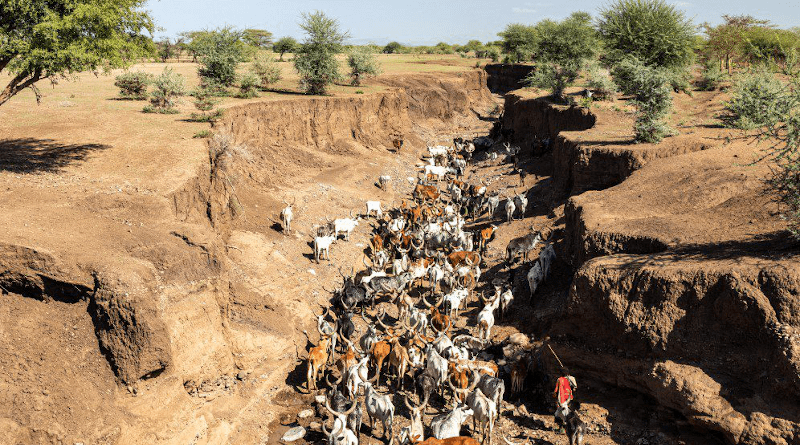‘Connect Climate Change Mitigation Policies’ To Save Rivers
By Eldon Opiyo*
Careful coordination of global climate change mitigation policies is needed to reduce unintended harmful local impacts to African river basins, a study says.
The study published in Nature Climate Change analysed about 7,000 future scenarios involving global climate change, policies that mitigate climate change and their local effects.
According to the study, increased vulnerabilities in African basins could occur because of policy fragmentation between developed and developing countries geared towards addressing carbon emissions from land-use changes.
“Our findings warn about the potential unintended consequences for water, energy, and food security in African river basins if global leaders fail to coordinate climate change mitigation,” says Andrea Castelletti, a co-author of the study and head of the Environmental Intelligence Lab at Politecnico di Milano in Italy.
“We, therefore, stress the importance of connecting global climate change mitigation policies to local dynamics for a better exploration of the full range of possible future scenarios while supporting policymakers in prioritising sustainable mitigation and adaptation solutions.”
Castelletti adds that the study focused on African river basins because while previous climate change mitigation studies have generally developed global or regional analyses, the measurement of local-scale impacts is often an overlooked aspect.
“This work builds on several years of research and stakeholder engagement sessions … to explore the water-energy-food nexus in complex transboundary water resource systems of fast developing countries,” Castelletti tells SciDev.Net.
The research project took the Zambezi watercourse as one of two case studies, the other being the Omo-Turkana basin on the border between Ethiopia and Kenya, he explains.
In experiments conducted between 2017 and 2020, researchers tested two land-use change (LUC) price regimes: a regionally differentiated and a globally uniform LUC price. In the regionally differentiated case, wealthy countries make strongattempts to curb LUC emissions, as indicated by a high LUC emissions price, while developing countries have limited LUC policies, represented by a lower LUC emissions price.
“Our results show that policy fragmentation between developed and developing countries in their approach to addressing carbon emissions from land-use changes can increase vulnerabilities in Africanbasins because fragmented policies could encourage proliferation of large-scale agricultural projects in Africa if land-use emissions are priced lower there,” Castelletti explains.
The study indicates that increased agricultural land use could lead to irrigation demands doubling under globally coordinated approaches that have been designed to curb carbon emissions. Such higher irrigation demands could negatively influence the availability of water resources for generating electricity, further putting stress on African economies.
“Globally designed strategies should be reconsidered in the lights of unexpected and unintended local impact to foster a more sustainable transition to a decarbonised future,” Castelletti says.
Shem Wandiga, a professor of chemistry at the University of Nairobi’s Institute for Climate Change Adaptation, Kenya, says: “Policy fragmentation is a stumbling block to addressing carbon emissions from land-use changes and can increase vulnerabilities in African basins. Policy fragmentation brings omission and conflict in implementation.”
The outcome of the study, according to Wandiga, is significant to policymakers, development experts and the general population in Africa.
“It is of great importance to enable coherence of management,” Wandiga adds. “Water is a disappearing commodity on the continent due to climatic change in almost all areas of the continent. Without water our survival is in danger.”
*Dan Eldon Opiyo is a hardworking and creative minded man with great interest in science journalism. He is a Kenyan journalist contributing to SciDev.Net’s Sub-Saharan Africa English Edition having ventured into journalism in November 2016.
This piece was produced by SciDev.Net’s Sub-Saharan Africa English desk.

